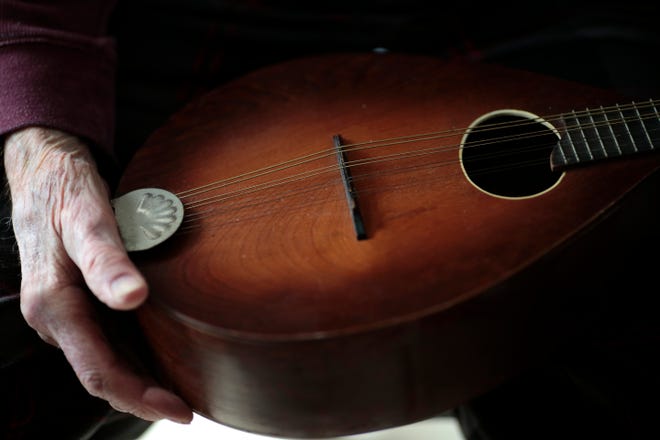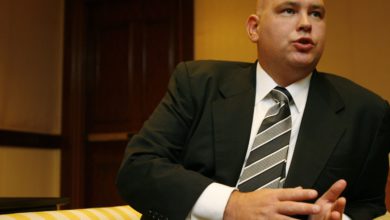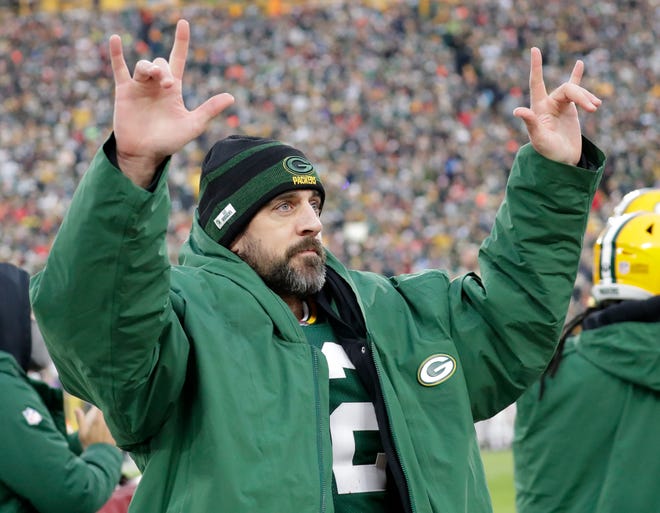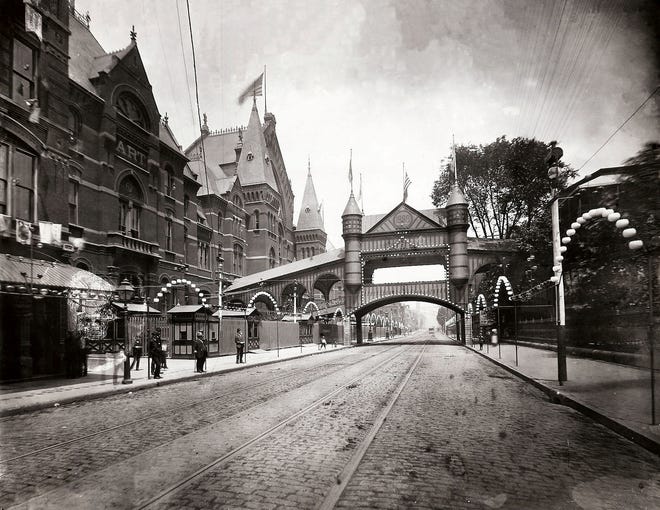

The mandolin is out of tune, and Albert Varhola doesn’t have a pick. The neck is worn, and part of its green label has chipped away.
Varhola doesn’t play the mandolin – or any instrument. He never has.
Years and years ago, this instrument belonged to his father. A steel mill worker in Portsmouth, his father wasn’t a musician either. But a young Varhola remembers his dad playing it for his siblings.
He had no idea what happened to the instrument after that. He hadn’t seen that mandolin since he was five years old, and he probably hasn't thought about it since. Until last year, when the 96-year-old saw it again, at a time when he desperately needed something to feel good about.
Today, the mandolin sits on a shelf above Varhola’s computer, where he spends much of his days. It sits next to a picture of his wife, signed “all my love.”
Varhola wants to live to 100. He runs on the treadmill and lifts weights every week. But last year, like so many others across the country, his family talked about what might happen if he contracted COVID-19. They talked about how he might die alone.
In November, Varhola contracted the virus.
…

The World War II veteran had gone to the doctor for back pain. An X-ray revealed pneumonia, and he would later test positive for COVID-19. His daughters began calling hospitals to try to find space for him. Some had waiting lists of 40 people.
Varhola spent 8 hours in the emergency room before a bed became available.
Around the same time, one of his daughters received a message on Ancestry.com. She had been on the genealogy website searching for veterans who served in the war with her father. She’d been thinking about all the people he’d lost – a daughter, his brother and sister, his first wife. She wanted to find someone he could talk to. Someone to reminisce with about better times.
That’s when a stranger messaged her about the mandolin. This man’s father knew her dad, but not from the war. At first, she had no idea what he was talking about. But she soon discovered her grandfather’s musical instrument had been given to a relative of Varhola’s best friend when he was a kid.
Varhola remembers hitchhiking to school with this friend, hitting baseballs together and making weekly trips to hotels looking for money people dropped behind cushions in the furniture. The friends lost touch after WWII, where Varhola’s ship transported 4,000 troops to Omaha Beach on D-Day.

All these years later, Varhola’s friend was in an assisted living facility near Portsmouth, about 100 miles east of Cincinnati, where they both grew up. Varhola called the facility, hoping to reconnect with his childhood.
His daughter had said this man's family had his dad's mandolin.
A nurse answered the phone. She told him his friend couldn’t speak, and she said he wasn’t doing very well. She offered to hold the phone up to his ear so he could listen. Varhola didn’t want to bother him.
The man died a few hours later.
…

In many ways, the long-lost instrument meant more to Varhola's daughter than it did to him.
For her, it became a way to learn new things about her dad's childhood. It became something she could do for him, even though she lived 473 miles away in Atlanta. And maybe most importantly, it became something she could talk to her dad about when he was in the hospital – when all she could think about was if he was going to die.
Varhola spent several days in isolation.
He said the virus affected every part of his body. He never had allergies, but his nose wouldn't stop running. His back hurt, food didn’t taste good and he struggled to go to the bathroom.
When he was released from the hospital, he was sent home with oxygen.

And as he recovered, a stranger in Missouri shipped the old mandolin to his daughter in Atlanta. She cleaned it up, and on Christmas, Varhola’s family gifted it to him. On a recent video call, Varhola pulled the instrument down from his bookshelf. It still hadn’t been tuned. He strummed a couple notes.
His daughter smiled, and so did he.
Because Varhola didn't need to know how to play the mandolin to tell its story. A story about fathers and sons, and fathers and daughters. A story about mortality. A story about the world, and his place in it.
Because Varhola is 96. And he knows his daughters will always have this.
For whenever they need it.
Source link








